Helping the country’s top commercial risk management and insurance brokers to recruit and develop the next generation of producers (sales people), we often get asked about the key ingredients for a successful new producer. Client hiring managers want to know, for sure, but so do candidates, business-to-business (B2B) sales reps considering the career transition to becoming commercial insurance brokers.
We’ve learned that you need to find an individual with a strong probability to be successful in the commercial insurance broker role, in the specific agency/brokerage firm and in the industry. Our assessments evaluate an individual’s success potential using 8 Key Success Criteria: (1) sales skills; (2) drive to achieve; (3) relationships skills; (4) cognitive abilities; (5) work ethic; (6) verbal skills; (7) career desires (fit), and (8) compensation fit. The detailed definitions for these 8 Key Success Criteria are contained in our prior post “New Producer Hiring: The Answer Key”: https://www.linkedin.com/pulse/new-producer-hiring-answer-key-james-caragher-cpcu-cic?trk=hp-feed-article-title-like
This post discusses sales skills which we define as a person who “has demonstrated effective sales skills with a record of successful selling in a business-to-business environment; has met or exceeded quotas; understands and applies sound principals of prospecting for new business, including cold calling; supervisors will support claims of sales success and reasons the candidate left their employ; is coachable and seeks to continually learn and improve.”
Our experience – and the much larger potential candidate pool compared to producers already in the insurance industry – suggests that agents need to go outside the insurance industry to successfully recruit new sales talent.
The ideal new producer candidate is a successful business-to-business (B2B) sales person from outside the insurance industry. The best predictor of future sales success is past sales success. It doesn’t really matter what product or service they sell, though it helps if it’s a service that’s fairly complex with a long sales cycle. What matters the most is that a person knows how to prospect and sell to business owners. Agents need to find B2B sales reps with experience generating leads, making cold calls and beating sales quotas. It’s a bonus if they can bring in a natural prospect starter pipeline.
These new producer candidates pose a highly manageable risk – with huge upside potential. And, if you think about it, doesn’t it make sense? The producer role is a sales role – so go find a great sales person who loves to sell and knows folks in your local market, and then support their gap in insurance technical knowledge with the people in your agency.
As part of a thorough work history review to find out whether a person is a high sales achiever, here are some interview questions to help evaluate a producer candidate’s sales skills:
- Tell me about your single most significant sales accomplishment.
- Products/services sold: describe how technical, complex and consultative.
- Sales cycle: describe the duration, pricing process and decision-makers involved.
- Quality of results: actual vs. quotas; sales contest/awards won; your rank in sales staff?
- Prospecting experience: # of calls per day/week; # of appointments per week?
- What have you learned in the past 6 months to get better at sales?
We recommend that you spend time drilling down into question #1 – the most significant sales accomplishment – to gather as much evidence as you can about the candidate’s sales skills through a deep dive into their choice of a single, memorable sale.
Finally, let’s talk about testing producer candidates for sales aptitude. The key to testing is to not over-weight test results in your hiring decision. Use tests – if they help you – as a support for your decision based on thorough interviewing and background and reference checks. We recommend the SPQ*Gold assessment profile because it’s specifically engineered to measure for sales call reluctance; it’s highly validated and will help you understand what the candidate will DO (make prospecting calls) versus many other tests that tell you what they ARE (personality and style).
